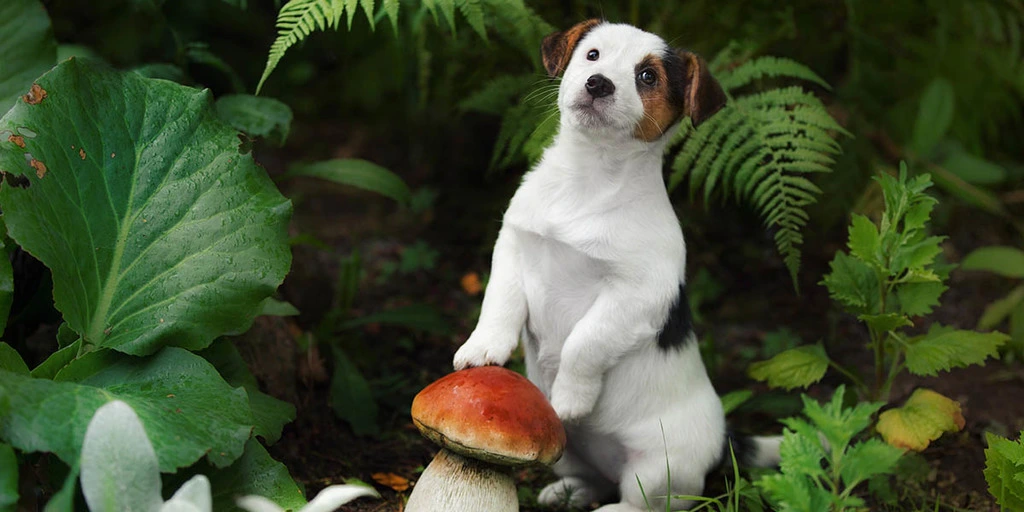As a dog owner, you may be curious about sharing your favorite foods with your furry friend. Mushrooms are a popular ingredient in many dishes, but can dogs eat them? This article will explore the safety of mushrooms for dogs, the potential benefits and risks, and what you should know before introducing mushrooms into your dog's diet.
Are Mushrooms Safe for Dogs?
The safety of mushrooms for dogs largely depends on the type of mushroom. While some mushrooms are safe and even beneficial for dogs, many types can be toxic. Wild mushrooms, in particular, can pose significant risks as some varieties are highly toxic and can lead to serious health issues or even death.
Safe Mushrooms for Dogs
Some commonly accepted safe mushrooms include:
- Button Mushrooms: These are the most commonly consumed mushrooms and are safe for dogs in moderation.
- Portobello Mushrooms: These larger mushrooms are also safe and can be a tasty addition to your dog’s diet when cooked properly.
- Shiitake Mushrooms: These are safe for dogs and are often used in various dishes for their health benefits.
Toxic Mushrooms
Many wild mushrooms can be toxic to dogs, including:
- Amanita Muscaria: Known as the fly agaric, this mushroom can cause severe gastrointestinal upset and neurological symptoms.
- Death Cap Mushroom: This mushroom is one of the deadliest and can cause liver failure and death in dogs.
- False Morels: These mushrooms can cause nausea, vomiting, and neurological symptoms.
Potential Benefits of Mushrooms for Dogs
When you choose safe mushrooms, they can provide several health benefits:
-
Nutritional Value: Mushrooms are a good source of vitamins (like B vitamins), minerals (such as selenium and potassium), and antioxidants, which can support your dog’s overall health.
-
Immune Support: Certain mushrooms, like shiitake and maitake, contain compounds that can help boost the immune system.
-
Digestive Health: Mushrooms are a source of dietary fiber, which can aid digestion and promote gut health.
Risks of Feeding Mushrooms to Dogs
While safe mushrooms can be beneficial, there are several risks to consider:
-
Toxicity: As mentioned, many wild mushrooms are toxic. If you suspect your dog has ingested a wild mushroom, contact your veterinarian immediately.
-
Allergic Reactions: Some dogs may have allergies or sensitivities to mushrooms. When introducing mushrooms into your dog's diet, start with a small amount and monitor for any adverse reactions, such as itching, swelling, or gastrointestinal upset.
-
Digestive Upset: Even safe mushrooms can cause gastrointestinal upset in some dogs, particularly if eaten in large quantities or raw. Always cook mushrooms before serving them to your dog.
How to Prepare Mushrooms for Dogs
If you decide to feed your dog safe mushrooms, here are some preparation tips:
-
Cook Thoroughly: Always cook mushrooms before serving them to your dog. Cooking helps break down certain compounds that can be difficult for dogs to digest.
-
Avoid Seasoning: Serve plain, cooked mushrooms without any spices, oils, or sauces. Seasonings like garlic and onion are toxic to dogs.
-
Serve in Moderation: Introduce mushrooms gradually and serve them as an occasional treat, not a staple of your dog’s diet.
Signs Your Dog Might Enjoy Mushrooms
If you’re unsure whether your dog will enjoy mushrooms, look for these signs:
- Eager Behavior: If your dog shows excitement when you’re preparing mushrooms, they may enjoy the taste.
- Positive Response: If your dog happily accepts a small piece of cooked mushroom, it’s a good sign they like it.
Alternative Healthy Treats for Dogs
If your dog isn’t a fan of mushrooms or if you’re looking for variety, consider these alternative healthy snacks:
- Carrots: Crunchy and low in calories, carrots are a great snack for dogs.
- Pumpkin: Cooked pumpkin is nutritious and can aid digestion.
- Sweet Potatoes: Rich in vitamins and fiber, sweet potatoes are a tasty option.
- Apples: A crunchy snack that’s high in fiber; just remove the seeds and core.
Conclusion
In summary, while some mushrooms are safe for dogs and can provide health benefits, caution is necessary when introducing them into your dog's diet. Always opt for safe, cooked mushrooms and avoid any wild varieties. If you’re ever in doubt about a mushroom’s safety, consult your veterinarian before offering it to your furry friend.
Takeaway Tips for Feeding Mushrooms to Dogs
- Choose Safe Varieties: Only feed your dog safe mushrooms, such as button, portobello, or shiitake mushrooms.
- Cook Thoroughly: Always cook mushrooms before serving; avoid raw mushrooms.
- Avoid Seasonings: Serve plain mushrooms without additives or toxic ingredients.
- Moderation is Key: Treat mushrooms as an occasional snack, not a regular part of your dog’s diet.
- Consult Your Vet: If unsure, seek advice from your veterinarian regarding your dog’s diet and mushroom safety.


